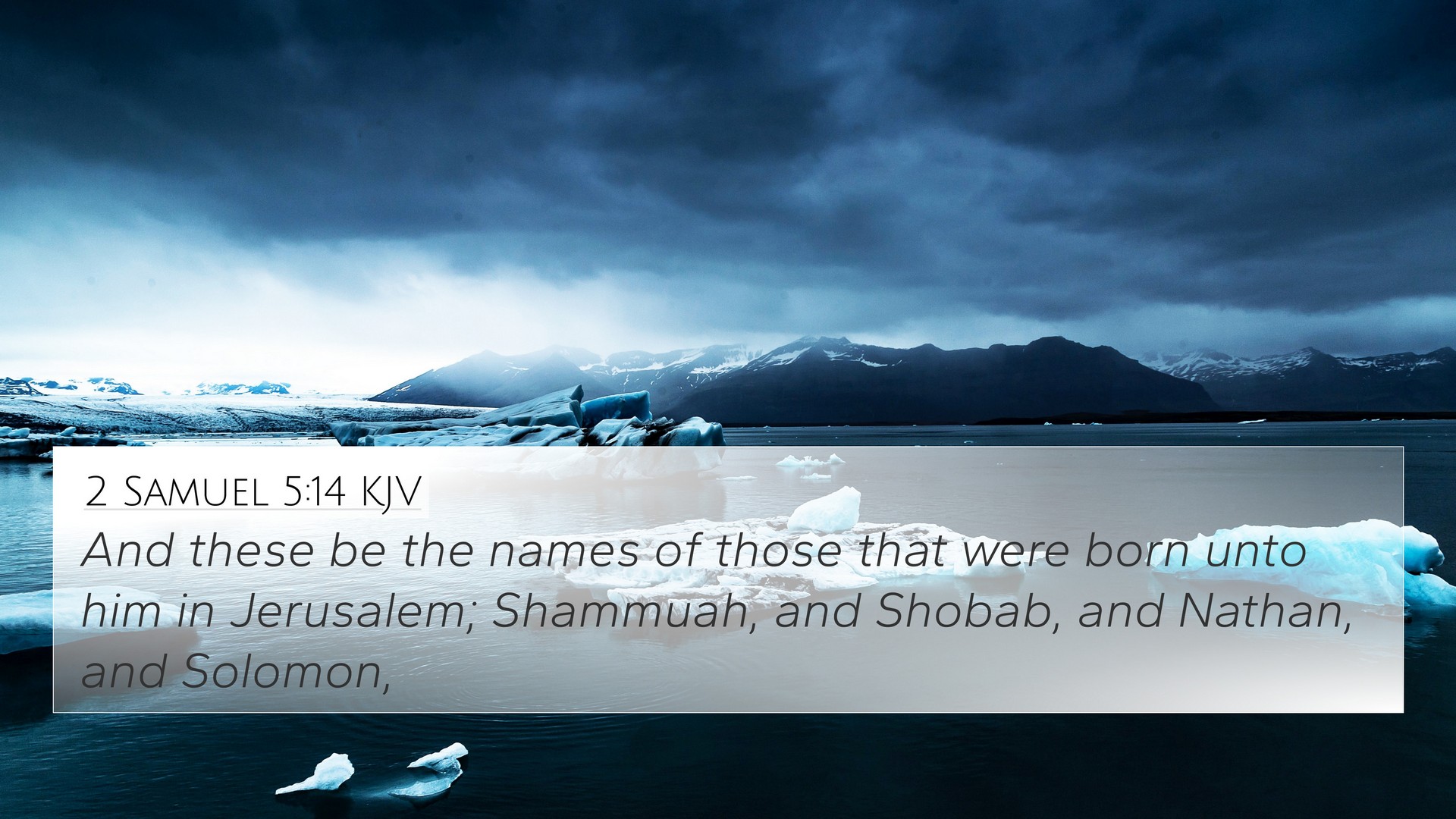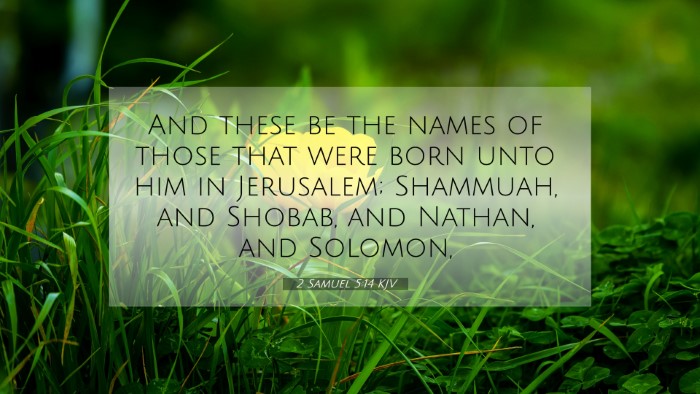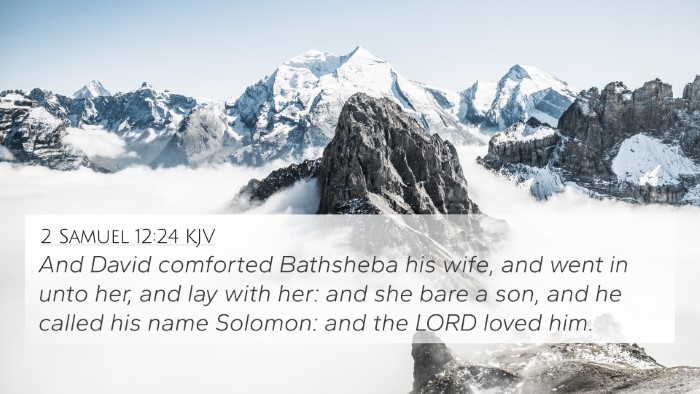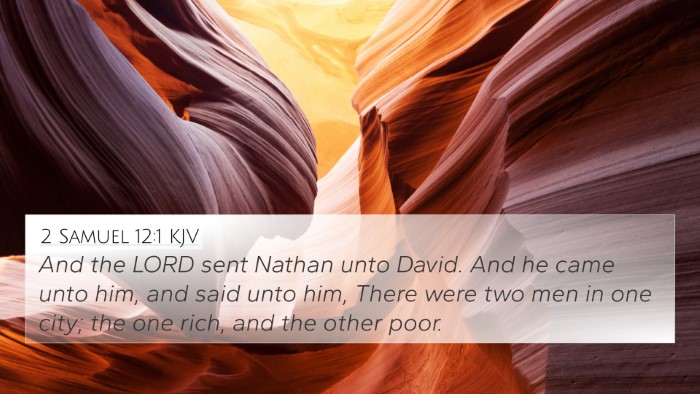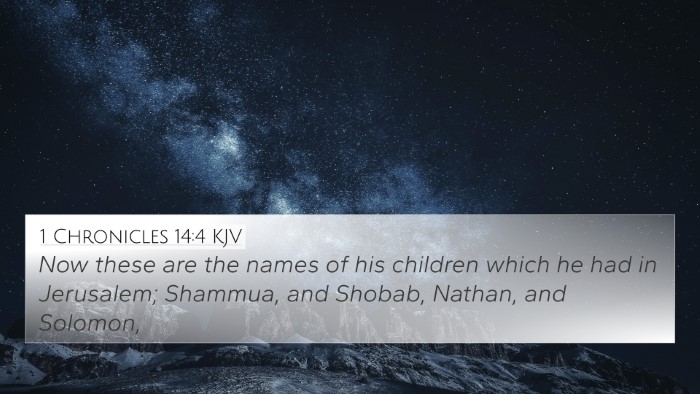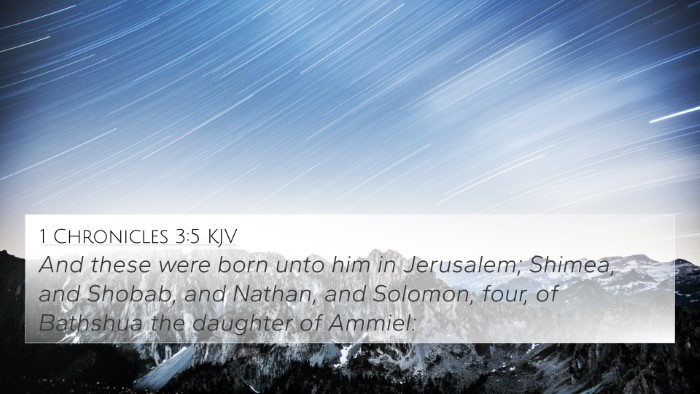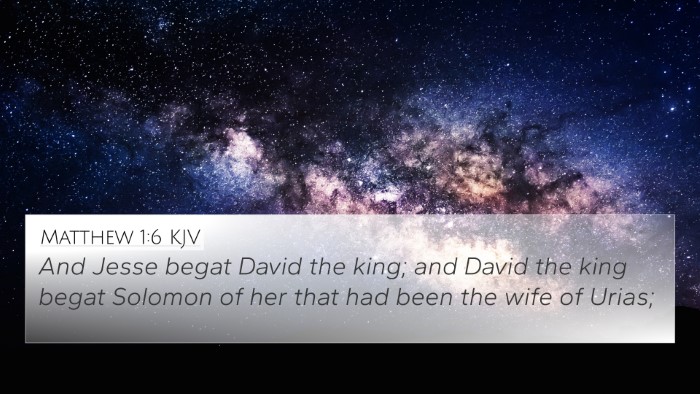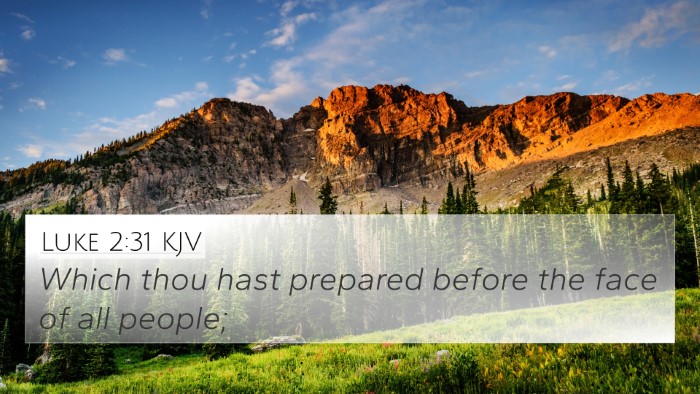Interpretation of 2 Samuel 5:14
Bible Verse: 2 Samuel 5:14 - "And these be the names of the children which he had in Jerusalem; Shammua, and Shobab, and Nathan, and Solomon."
Summary of Meaning
The verse lists the names of the children born to King David in Jerusalem. It serves not only as a historical record but also emphasizes the royal lineage and the establishment of David's kingdom in the city of Jerusalem.
From biblical commentaries, we can derive several layers of understanding:
- Historical Context: Matthew Henry notes that David's establishment in Jerusalem marks the fulfillment of God's promise to make him king, and the naming of his children signifies the blessings of his reign.
- Symbolism of Names: Each name holds significant meanings in Hebrew, reflecting various attributes and characteristics that may serve as parallels to David’s leadership.
- Lineage Importance: Adam Clarke explains that the mention of Nathan and Solomon foreshadows their future roles in the lineage of Christ and highlights the importance of David's dynasty in biblical history.
Cross-References and Connections
This verse connects to several other scriptural texts, illustrating its significance in the broader biblical narrative. Here are some notable cross-references:
- Matthew 1:6: This genealogy of Jesus Christ links directly back to David, highlighting his royal lineage.
- 1 Chronicles 3:5: Provides additional context about David's sons and their roles.
- 2 Samuel 12:24: Discusses the birth of Solomon, further emphasizing his significance.
- 1 Kings 1:11-12: Shows the conflict regarding David’s heirs and the succession of the throne.
- Psalm 132:11: Reinforces God’s promises concerning David’s descendants sitting on the throne.
- Luke 1:32-33: Points to the promise of Jesus sitting on David's throne, establishing a connection between the Old and New Testament.
- Hebrews 7:14: Mentions Jesus as a descendant of Judah, linking back to the lineage that includes David.
Insights from Commentaries
By comparing commentary insights, we see varied interpretations:
Matthew Henry: Emphasizes God’s favor upon David and the continuity of the Messianic line.
Albert Barnes: Highlights the significance of Jerusalem as the chosen city for David’s reign and its spiritual implications.
Adam Clarke: Notes the likely prophetic significance of Solomon's name, indicating peace—a quality associated with his reign.
Thematic Connections
This verse bears thematic connections to:
- The Promise of Kingship: Reflected in God’s covenant with David in 2 Samuel 7:12-16.
- The Role of Women in Davidic Lineage: Consider reference to Bathsheba in 2 Samuel 11:4, emphasizing her vital role.
- God’s Faithfulness: Seen through the preservation of David’s line despite various challenges.
Conclusion
2 Samuel 5:14 serves as a critical verse summarizing the initial blessings and royal heritage of King David in Jerusalem. It exemplifies God’s covenant faithfulness and the unfolding of redemptive history. By engaging in a bible cross-reference guide, believers can deepen their understanding of God’s plans through inter-biblical dialogue and thematic connections.
